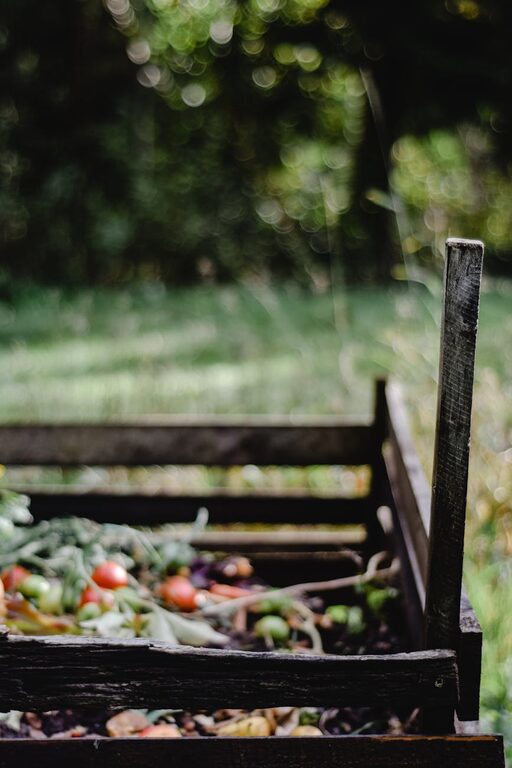Composting at home is a rewarding way to reduce waste, enrich your garden soil, and contribute positively to the environment. If you’re new to composting, the idea of managing food scraps and yard waste might seem overwhelming—but with a few simple tips, you can start your compost bin confidently and watch your organic materials transform into valuable compost.
In this guide, we’ll explore beginner-friendly tips to help you compost effectively at home.
What Is Composting?
Composting is a natural process where organic materials—like vegetable scraps, leaves, and grass clippings—break down into nutrient-rich soil called compost. This soil amendment improves garden health, retains moisture, and reduces the need for chemical fertilizers.
Why Start Composting at Home?
– Reduce Waste: About 30% of household waste is compostable. Composting keeps this out of landfills.
– Enhance Soil: Compost enriches soil with nutrients and beneficial microbes.
– Save Money: Reduce your need for store-bought fertilizers and soil conditioners.
– Support the Environment: Composting lowers methane emissions from landfills and reduces your carbon footprint.
Getting Started: Beginner Tips for Composting at Home
1. Choose the Right Compost Bin or Pile
Depending on your space and preferences, there are several compost methods:
– Compost Bin: A container with good ventilation. Ideal for small spaces or patios.
– Compost Tumbler: A rotating bin that makes mixing easier.
– Compost Pile: An open pile in your backyard—simple but may take longer to break down materials.
Pick one that fits your living situation and availability.
2. Select a Suitable Location
Place your compost bin or pile in a well-drained, accessible spot with some shade. Too much direct sun can dry out your compost, while a completely shaded area may slow decomposition.
3. Understand Compost Ingredients: Browns and Greens
Successful composting requires balancing two types of materials:
– Greens: Nitrogen-rich items like fruit and vegetable scraps, coffee grounds, fresh grass clippings, and garden waste.
– Browns: Carbon-rich materials such as dry leaves, straw, cardboard, paper, and small branches.
Aim for a balance of roughly 3 parts browns to 1 part greens. This helps create the right environment for microbes to break down the materials efficiently.
4. Avoid Adding Certain Items
Some things should never go into your compost because they can attract pests, introduce diseases, or slow decomposition:
– Meat, dairy, and oily foods
– Pet waste
– Diseased plants
– Coal or charcoal ash
– Processed foods with preservatives
Stick to plant-based kitchen scraps and yard debris instead.
5. Prepare Your Materials
Chopping or shredding larger items speeds up decomposition. For example, cut vegetable scraps into smaller pieces and break up dry leaves. This increases the surface area for microbes to work on.
6. Maintain Your Compost Pile
Regular maintenance helps produce quality compost faster:
– Turn or Mix: Aerate your compost every 1-2 weeks by turning it with a pitchfork or mixing it with a shovel. Oxygen helps the microbes thrive.
– Keep It Moist: Compost should feel like a damp sponge—not too dry or soggy. Water it occasionally if necessary.
– Monitor Temperature: Active compost piles heat up. This is normal and helps kill weed seeds. If it cools down, turning or adding greens can help restart the process.
7. Be Patient
Composting takes time! Depending on conditions, compost can be ready in 2-6 months. You’ll know it’s done when the material is dark, crumbly, and earthy-smelling.
8. Use Your Finished Compost Effectively
Once your compost is ready, use it to:
– Enrich garden beds or flower pots
– Mulch around plants to retain moisture
– Feed houseplants mixed into their potting soil
Your plants will thank you with healthier growth.
Troubleshooting Common Compost Issues
– Bad Odor: Usually caused by too much moisture or too many greens. Add more browns and turn the pile.
– No Heat or Activity: Might mean the pile is too dry, too small, or lacks nitrogen. Add water, green materials, and increase pile size.
– Pests: Avoid meat and oily foods—use secure bins and cover food scraps with browns.
Final Thoughts
Starting composting at home doesn’t have to be complicated. By following these simple tips and paying attention to your compost pile’s needs, you’ll contribute to a more sustainable lifestyle and improve your garden’s health. Remember, composting is a learning process—don’t be afraid to experiment and adjust as you go.
Happy composting!

